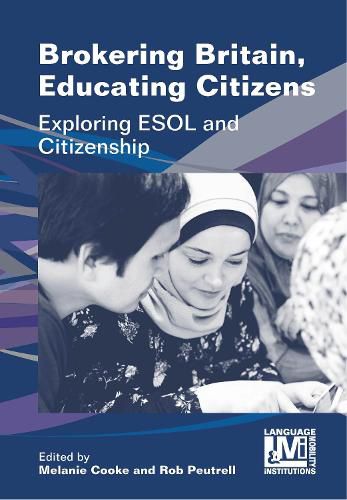Readings Newsletter
Become a Readings Member to make your shopping experience even easier.
Sign in or sign up for free!
You’re not far away from qualifying for FREE standard shipping within Australia
You’ve qualified for FREE standard shipping within Australia
The cart is loading…






This book addresses the politically charged issue of citizenship and English language learning among adult migrants in the UK. Whilst citizenship learning is inherent in English for Speakers of Other Languages (ESOL), the book argues that top-down approaches and externally-designed curricula are not a productive or useful approach. Meaningful citizenship education in adult ESOL is possible, however, if it brings social and political content centre-stage alongside pedagogy which develops the capabilities for active, grassroots, participatory citizenship. The chapters deliver a detailed examination of citizenship and ESOL in the UK. They address a range of community and college-based settings and the needs and circumstances of different groups of ESOL students, including refugees, migrant mothers, job seekers and students with mental health needs. The book draws attention to the crucial role of ESOL teachers as ‘brokers of citizenship’ mediating between national policy and the experiences and needs of adult migrant students. The book links together language pedagogy and citizenship theory with the practical concerns of ESOL teachers and students.
$9.00 standard shipping within Australia
FREE standard shipping within Australia for orders over $100.00
Express & International shipping calculated at checkout
This book addresses the politically charged issue of citizenship and English language learning among adult migrants in the UK. Whilst citizenship learning is inherent in English for Speakers of Other Languages (ESOL), the book argues that top-down approaches and externally-designed curricula are not a productive or useful approach. Meaningful citizenship education in adult ESOL is possible, however, if it brings social and political content centre-stage alongside pedagogy which develops the capabilities for active, grassroots, participatory citizenship. The chapters deliver a detailed examination of citizenship and ESOL in the UK. They address a range of community and college-based settings and the needs and circumstances of different groups of ESOL students, including refugees, migrant mothers, job seekers and students with mental health needs. The book draws attention to the crucial role of ESOL teachers as ‘brokers of citizenship’ mediating between national policy and the experiences and needs of adult migrant students. The book links together language pedagogy and citizenship theory with the practical concerns of ESOL teachers and students.